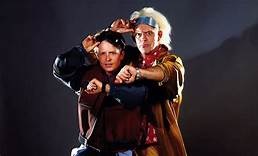I think the lesson is that unless you’re intentional, things usually don’t change. ~Billie Jean King
Being a future-back thinker requires intentionality. It’s a word that I’ve circled back to frequently this year. I’ve worked with a number of boards over the past year and I would describe several as “waiting until someone brings them something to react to.” Whereas intentional would mean being deliberate, purposeful, intended, and planned.
Richie Norton said, “Intentional living is the art of making our own choices before others’ choices make us.” I would modify that slightly for leadership and say, “Intentional leadership is the art of making choices before others’ choices make us.”
I’ve heard some leaders say “I don’t have time to be intentional. I have too many things I need to respond (or react) to every day. Being intentional is a luxury I don’t have.” Well, Richie Norton has a response to that as well. He said, “You don’t need more time, you need to act on creative, intent-based ideas.”
How to be more intentional?
Become a future-back thinker.
Tanya Prive wrote in Inc. “Mark Johnson, author of Lead From the Future, argues that strategic planning requires a series of outcomes not from the present to the future, but, rather, from the future back into the present – as “future-back thinkers.” Others may refer to it as reverse engineering. Starting from the endpoint and working your way back is a highly effective way of designing a road map to realize the strategy or future you intend.”
If you don’t know where it is you’re going, it’s difficult, if not nearly impossible, to be intentional. If you are simply allowing the past to push you into the future, then you are only “forecasting” where you are going. Forecasting is not planning and it’s not intentional. It’s the opposite of intentional. It means your movement into the future is accidental, haphazard, or involuntary.
Realize a future that was not predictable.
Prive also says that “A leader’s sole purpose is to realize a future that was not predictable or going to happen anyway.” I feel like that needs repeating. “A leader’s sole purpose is to realize a future that was not predictable or going to happen anyway.” Sounds like leaders need to be intentional. Prive goes on to say “That’s where management stops and leadership starts. Your main focus should be on getting your team aligned and inspiring coordinated actions throughout your organization. To do that, you continuously must have conversations with various stakeholders, each and every day.”
Intentionality means you know where you are going, and have given it the priority of both your time and attention that it requires. You’re not just waiting until someone or something is knocking at your door and needs attention. You are choosing what needs and gets your attention. You’re intentional. That’s leading with bold grace.
Unless you’re intentional, things usually don’t change. ~Billie Jean King
